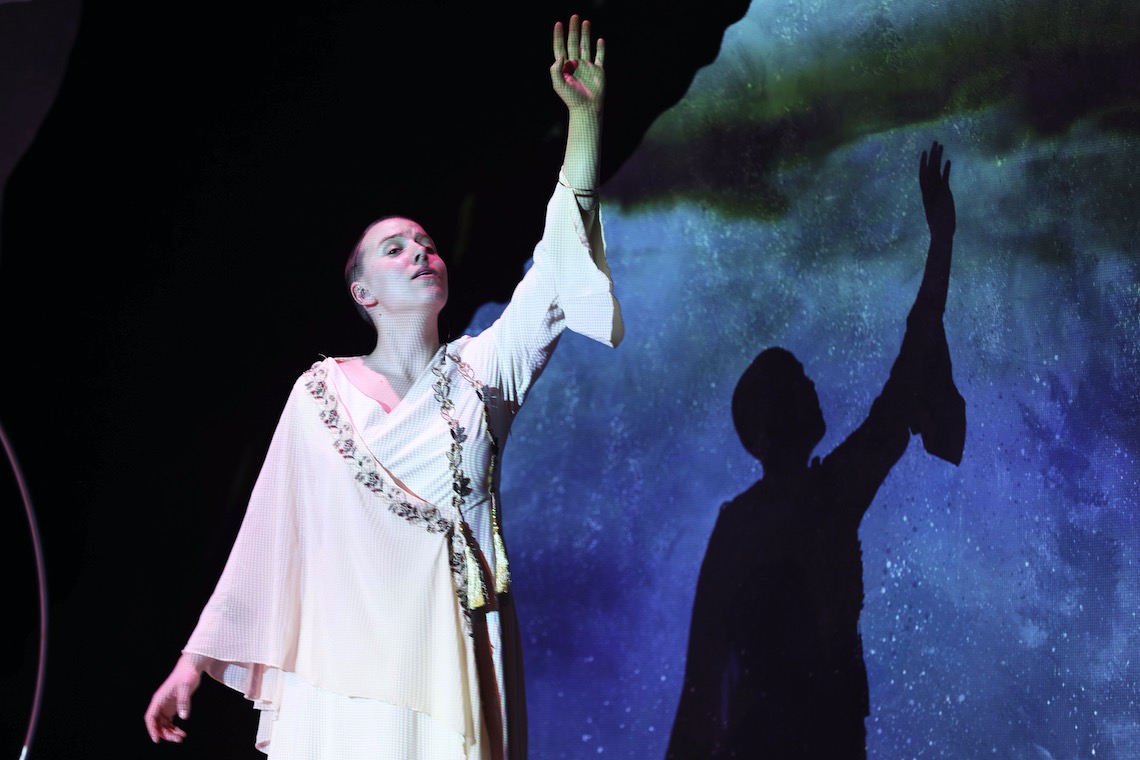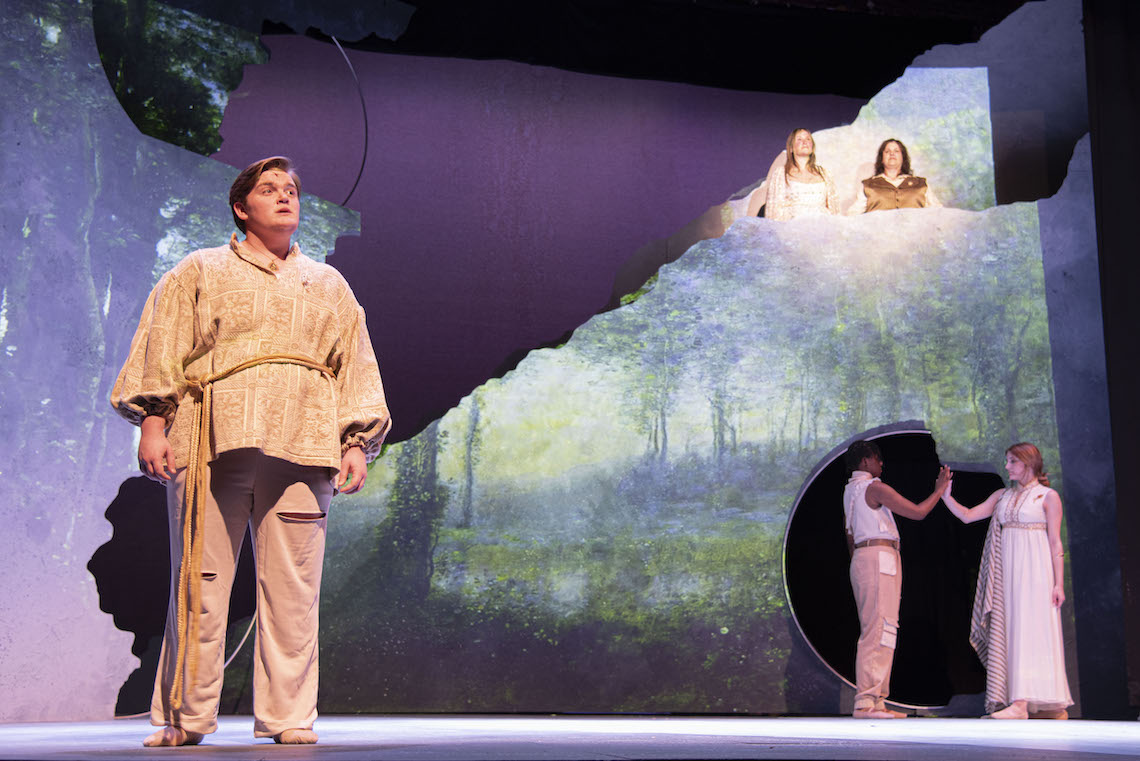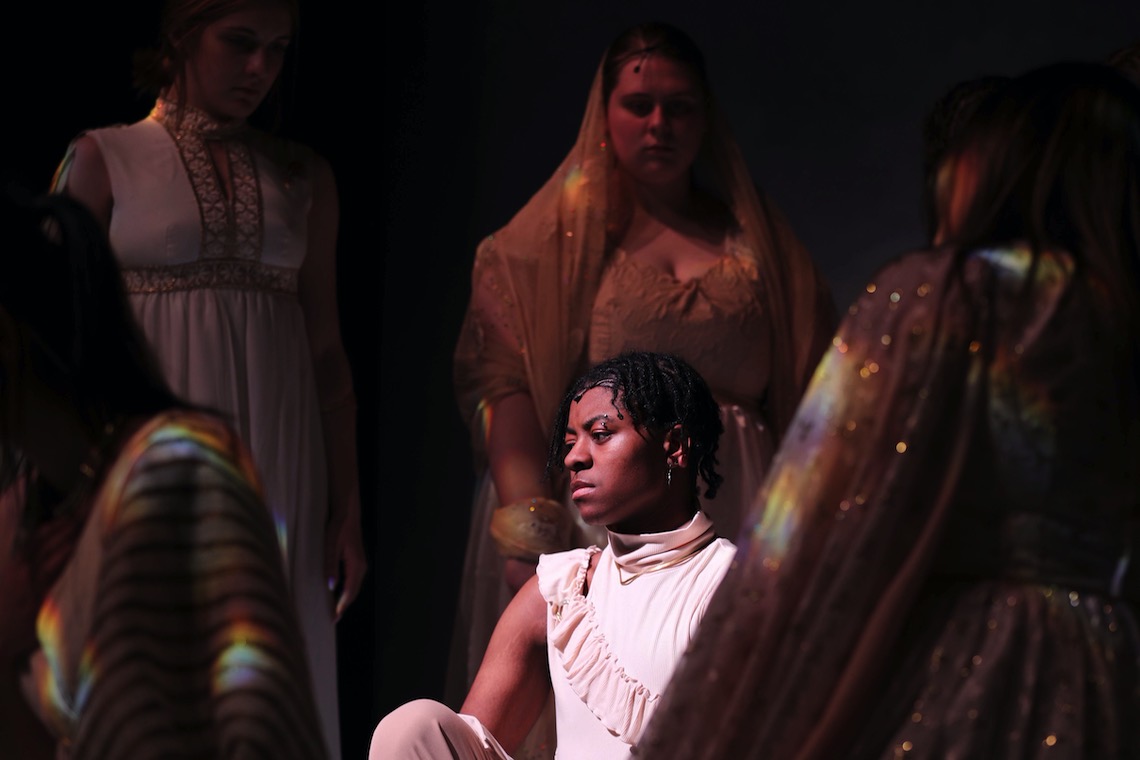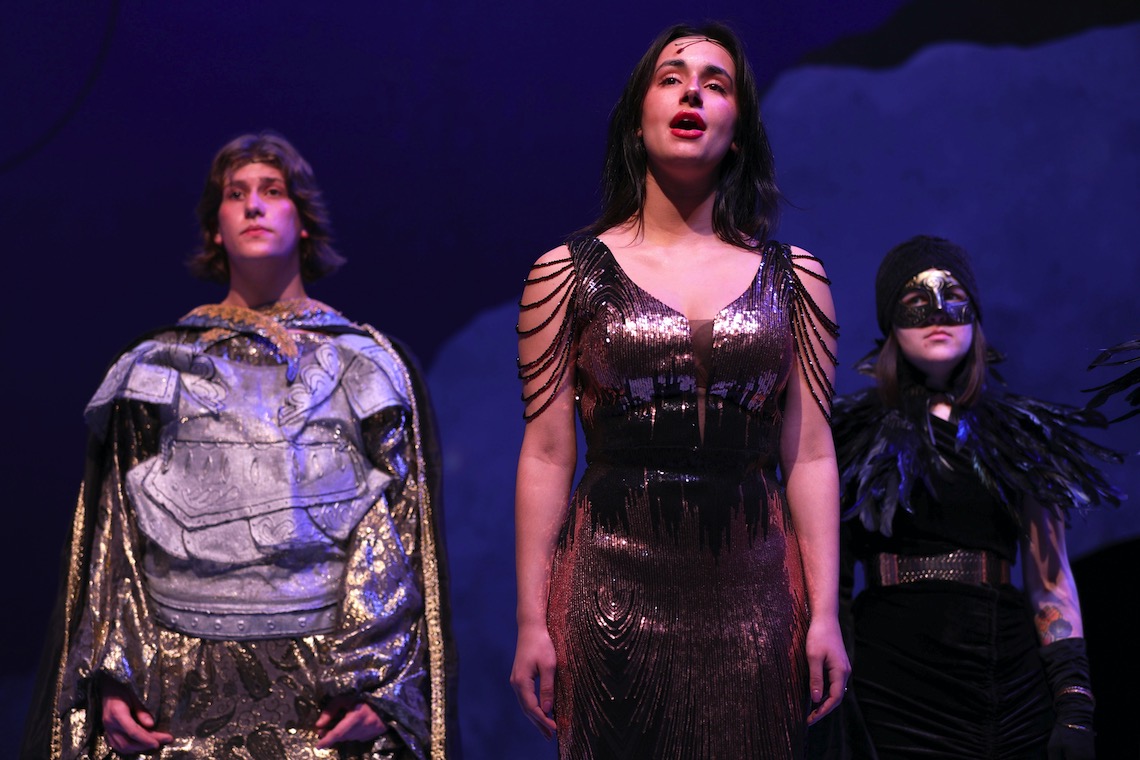
With each of the lead roles split among a trio of actors, “Eurydice Rising” is three shows in one. The innovative storytelling approach allows patrons of the Russell Hall theatre in Gorham to view a centuries-old story with fresh eyes.
“What makes the show really unique is that we’re collaborating,” said Shae-Lynn Pagurko. “We don’t only have the actors, not only the singers. We have the dancers as well. Bringing that in presents a whole new way to express and to tell the story.”
Pagurko is one-third of the Eurydice trifecta that also includes Bella St. Cyr and Kaleigh Hunter. Each one brings different strengths to the role. They take turns on stage depending on the needs of the scene. Sometimes, they all appear at once to combine their talents for maximum effect.
“Eurydice Rising” is based on the ancient Greek myth of Orpheus. Heartbroken over the death of his wife, Orpheus uses his gift for music to charm his way through the underworld in the hope of rescuing her.

The usual portrayal of Eurydice as a passive damsel in distress didn’t sit well with Rachel Price Cooper. She rewrote the myth to show that Eurydice’s emotional journey was just as important as Orpheus’ heroics. Price Cooper ensured her vision reached the stage in tact by also assuming the directorial reins.
In updating the story for the present, Price Cooper paid respect to its history, as well. Orpheus’ adventures have long been a popular subject of opera. Working with Musical Director Scott Wheatley, Price Cooper wove together a cohesive narrative using bits of past adaptations and other compositions that fit their theme.
They drew on classical composers such as Mozart, Strauss, and Monteverdi, as well as contemporary songwriters like Sara Bareilles. When the singers weren’t delivering their arias, spoken monologues and dance routines moved the story forward.
“All of the singers have a lot of dialogue,” said Rebecca Goff. “It’s been a great challenge for all of us to grow our theatrical and acting skills, not just the singing part.”
Goff is a graduate student in the second year of her master’s program in Vocal Pedagogy and Performance. It’s usually her voice that you hear when the script calls for Orpheus to sing in Italian. Oliver Scott handles most of the singing in English for Orpheus.

With Lucious Finston-Fox completing the triumvirate, the cast jokes that the three of them are collectively known as the Orphei, using the same plural form as alumni or fungi. Finston-Fox is a sophomore with a double major in Theatre and Social Work. Sharing a role required him to develop an understanding with his castmates.
“Okay, you’re doing this. I’ll do something similar, but not quite the same. I’ll do it my way,” Finston-Fox said.
Finston-Fox barely speaks as Orpheus. Instead, he lets his dancing do the talking. Among the three Eurydices, Pagurko is the primary dancer. Perhaps no moment showcases their dancing better than the wedding scene when Pagurko and Finston-Fox come together to express the fullness of their characters’ love.
“Dance, for me, has always been a way to express my emotions, to express any tragedy or any joy in life,” Pagurko said. “In the beginning of the play, I feel that dancing is one of the best ways to express the joy of having friends, being young, having so much ahead of you.”

Pagurko brings a different perspective to the show. She’s a sophomore majoring not in Theatre or Music but in Criminology. She spends a lot of class time discussing the relative merits of punishment and rehabilitation in the criminal justice system. As Eurydice, she must also come to terms with life in the underworld, a place of eternal torment or reward.
“She has a positive outlook on it,” Pagurko said. “Yes, she lost something very precious to her. But she was not lost. She has an opportunity ahead.”
Theater goers have one more chance to decide how they feel about Eurydice’s fate. “Eurydice Rising” opened for its world premiere on April 4. It’s a joint production of the University of Southern Maine’s Theatre Department and the Osher School of Music. The six-show run comes to an end with a final performance on Saturday, April 8 at 2 p.m.

